Audi Q6 e-tron vs Volvo XC40 - Differences and prices compared
Compare performance (490 HP vs 197 HP), boot space and price (54400 £ vs 36800 £ ) at a glance. Find out which car is the better choice for you – Audi Q6 e-tron or Volvo XC40?
Costs and Efficiency:
Price and efficiency are key factors when choosing a car – and this is often where the real differences emerge.
Volvo XC40 has a decisively advantage in terms of price – it starts at 36800 £ , while the Audi Q6 e-tron costs 54400 £ . That’s a price difference of around 17666 £.
Engine and Performance:
Under the bonnet, it becomes clear which model is tuned for sportiness and which one takes the lead when you hit the accelerator.
When it comes to engine power, the Audi Q6 e-tron has a decisively edge – offering 490 HP compared to 197 HP. That’s roughly 293 HP more horsepower.
In acceleration from 0 to 100 km/h, the Audi Q6 e-tron is clearly quicker – completing the sprint in 4.40 s, while the Volvo XC40 takes 7.60 s. That’s about 3.20 s faster.
In terms of top speed, the Audi Q6 e-tron performs evident better – reaching 230 km/h, while the Volvo XC40 tops out at 180 km/h. The difference is around 50 km/h.
There’s also a difference in torque: Audi Q6 e-tron pulls convincingly stronger with 855 Nm compared to 300 Nm. That’s about 555 Nm difference.
Space and Everyday Use:
Whether family car or daily driver – which one offers more room, flexibility and comfort?
Both vehicles offer seating for 5 people.
In curb weight, Volvo XC40 is noticeable lighter – 1688 kg compared to 2200 kg. The difference is around 512 kg.
In terms of boot space, the Audi Q6 e-tron offers slightly more room – 526 L compared to 452 L. That’s a difference of about 74 L.
In maximum load capacity, the Audi Q6 e-tron performs slightly better – up to 1529 L, which is about 201 L more than the Volvo XC40.
When it comes to payload, Audi Q6 e-tron barely noticeable takes the win – 540 kg compared to 532 kg. That’s a difference of about 8 kg.
Who comes out on top?
Overall, the Audi Q6 e-tron shows itself to be is largely superior and secures the title of DriveDuel Champion.
It convinces with the more balanced overall package and proves to be the more versatile choice for everyday use.
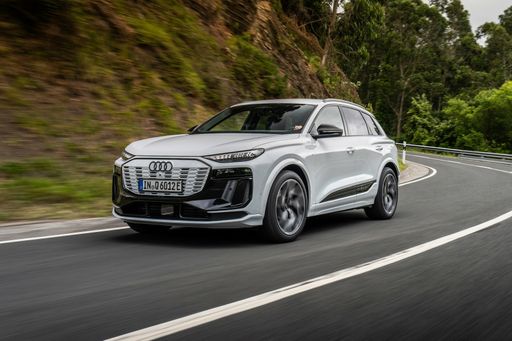
Audi Q6 e-tron
Costs and Consumption
View detailed analysis
Engine and Performance
View detailed analysis
Dimensions and Body
View detailed analysis
Audi Q6 e-tron
The Audi Q6 e-tron balances sleek, coupe-like styling with a roomy, upscale interior that feels modern without being showy. It delivers refined electric performance and smart tech that make daily driving effortless — the sort of EV that might make petrolheads grudgingly admit they fancy the future.
details
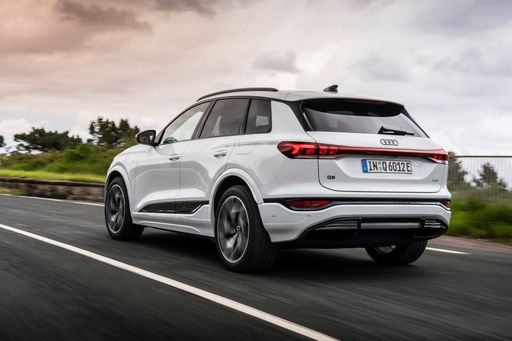
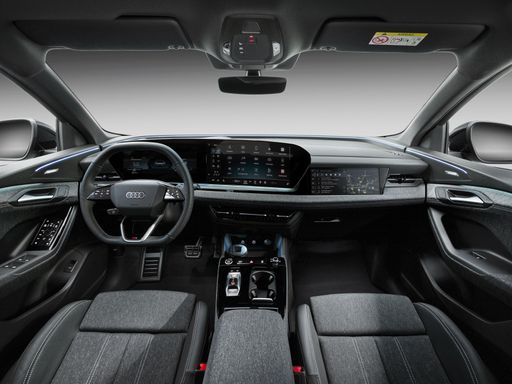
Volvo XC40
The Volvo XC40 wraps Scandinavian minimalism into a compact, city-ready SUV with a premium cabin that feels both practical and grown-up. It will suit buyers who prize safety, clever storage and a composed ride, proving that small dimensions don't mean small personality.
details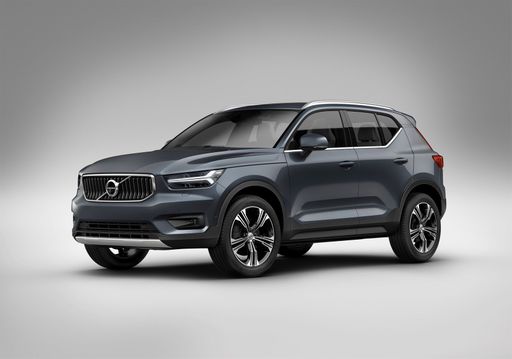


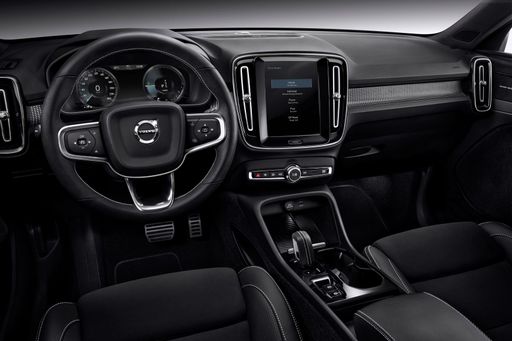

Costs and Consumption |
|
|---|---|
|
Price
54400 - 91900 £
|
Price
36800 - 47200 £
|
|
Consumption L/100km
-
|
Consumption L/100km
6.50 L
|
|
Consumption kWh/100km
15.6 - 18.9 kWh
|
Consumption kWh/100km
-
|
|
Electric Range
482 - 656 km
|
Electric Range
-
|
|
Battery Capacity
75.8 - 94.9 kWh
|
Battery Capacity
-
|
|
co2
0 g/km
|
co2
147 - 148 g/km
|
|
Fuel tank capacity
-
|
Fuel tank capacity
54 L
|
Dimensions and Body |
|
|---|---|
|
Body Type
SUV
|
Body Type
SUV
|
|
Seats
5
|
Seats
5
|
|
Doors
5
|
Doors
5
|
|
Curb weight
2200 - 2425 kg
|
Curb weight
1688 kg
|
|
Trunk capacity
499 - 526 L
|
Trunk capacity
452 L
|
|
Length
4771 mm
|
Length
4425 mm
|
|
Width
1939 - 1965 mm
|
Width
1863 mm
|
|
Height
1665 - 1685 mm
|
Height
1652 mm
|
|
Max trunk capacity
1361 - 1529 L
|
Max trunk capacity
1328 L
|
|
Payload
540 kg
|
Payload
532 kg
|
Engine and Performance |
|
|---|---|
|
Engine Type
Electric
|
Engine Type
Petrol MHEV
|
|
Transmission
Automatic
|
Transmission
Automatic
|
|
Transmission Detail
Reduction Gearbox
|
Transmission Detail
Dual-Clutch Automatic
|
|
Drive Type
Rear-Wheel Drive, All-Wheel Drive
|
Drive Type
Front-Wheel Drive
|
|
Power HP
252 - 490 HP
|
Power HP
163 - 197 HP
|
|
Acceleration 0-100km/h
4.4 - 7.6 s
|
Acceleration 0-100km/h
7.6 - 8.6 s
|
|
Max Speed
210 - 230 km/h
|
Max Speed
180 km/h
|
|
Torque
450 - 855 Nm
|
Torque
265 - 300 Nm
|
|
Number of Cylinders
-
|
Number of Cylinders
4
|
|
Power kW
185 - 360 kW
|
Power kW
120 - 145 kW
|
|
Engine capacity
-
|
Engine capacity
1969 cm3
|
General |
|
|---|---|
|
Model Year
2024 - 2025
|
Model Year
2024
|
|
CO2 Efficiency Class
A
|
CO2 Efficiency Class
E
|
|
Brand
Audi
|
Brand
Volvo
|
What drivetrain options does the Audi Q6 e-tron have?
Available configurations include Rear-Wheel Drive or All-Wheel Drive.




